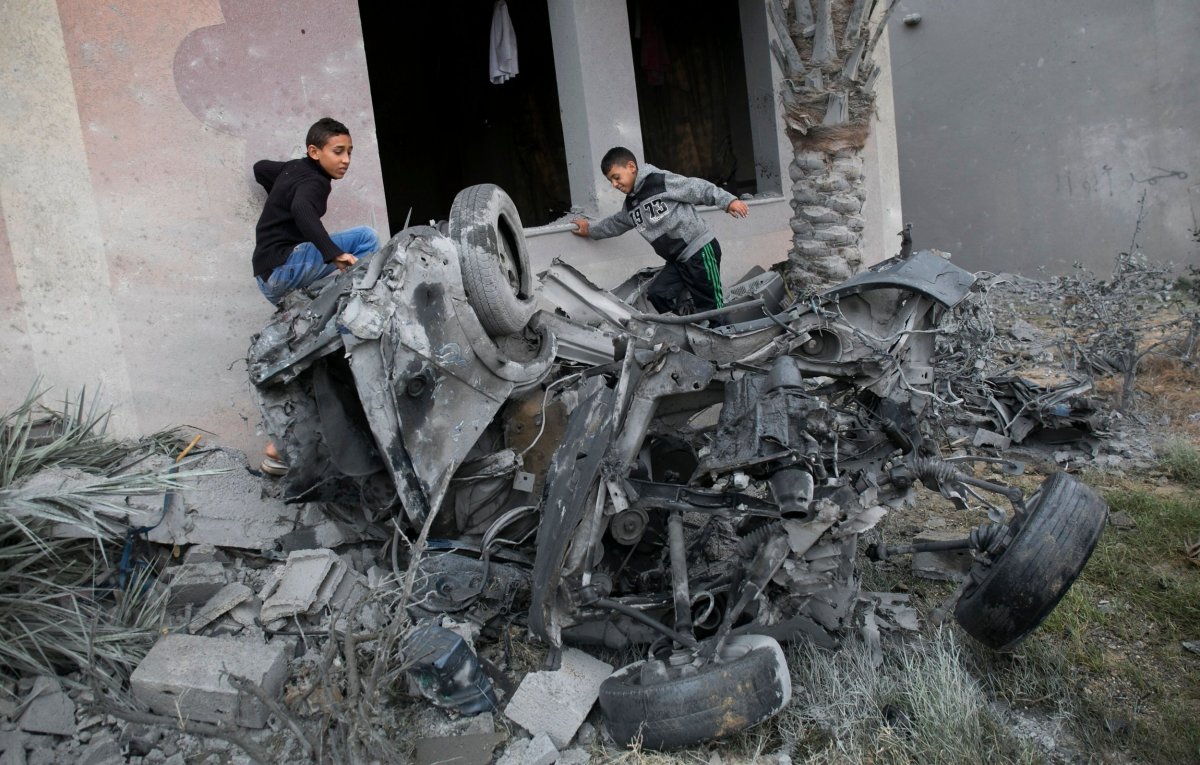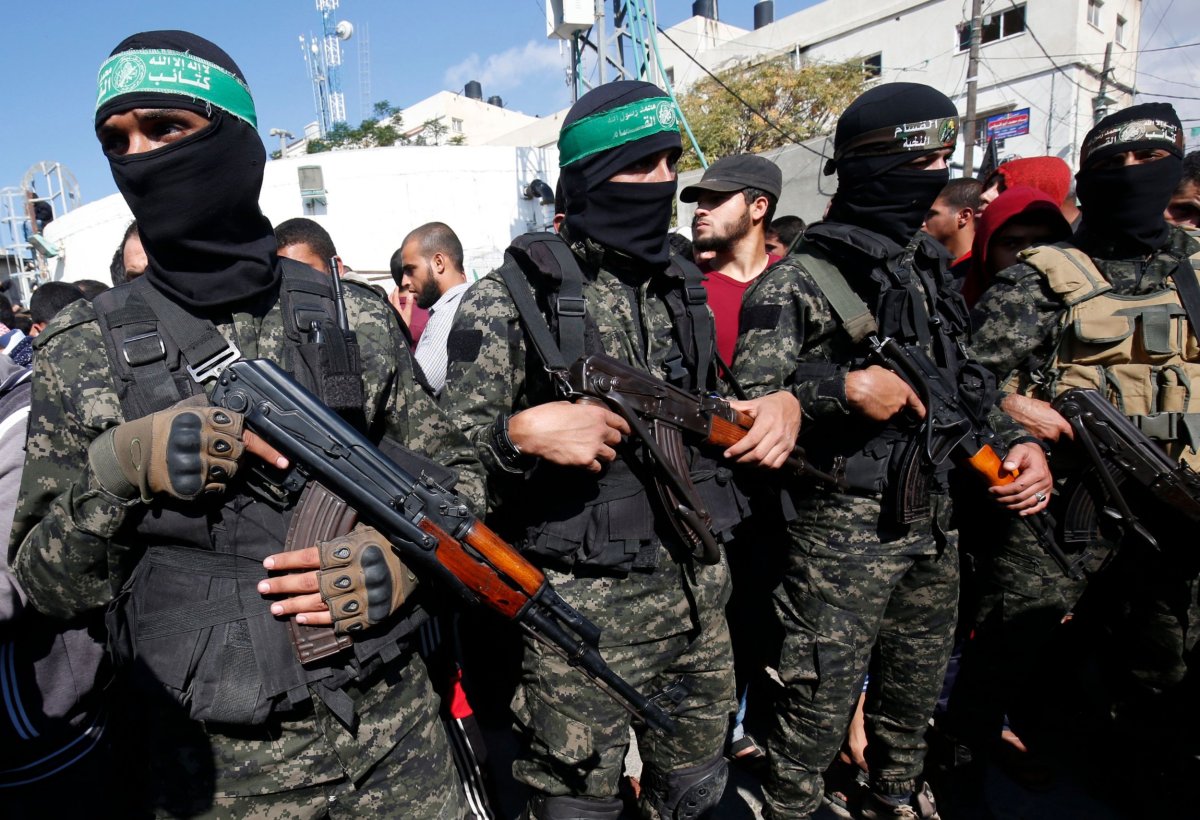An Israeli raid in the Gaza Strip Sunday killed a Hamas commander and sparked fresh exchanges of cross-border fire, despite recent talk of a ceasefire agreement.
At least six other Palestinians were killed during the raid, along with one Israeli officer, Reuters reported. Another Israeli agent was wounded.
Hamas said the incident began when Israeli agents opened fire on a group of Hamas militants from an unmarked car east of the city of Khan Younis in the southern Gaza Strip, killing commander Nour Baraka, according to Reuters. The group said its fighters gave chase as the Israelis sped back toward the border
The Israelis called in airstrikes to cover their retreat, Reuters reported, with Israel Defense Forces (IDF) aircraft firing more than 40 missiles at a host of targets in the surrounding area.
Officials in Gaza said four of the seven killed were Hamas militants. The identities of the three other casualties were not immediately made clear. Another seven Palestinians were wounded, health officials and Hamas said.
The IDF released a statement explaining that "an exchange of fire" evolved during a special forces mission inside the Gaza Strip. It identified the dead soldier only as Lieutenant Colonel M.
According to The Times of Israel, IDF spokesperson Ronen Manelis described the incident as an intelligence operation that went awry. He stressed that the operatives were not intending to kidnap or assassinate any Hamas targets.

The IDF is not disclosing most details of the raid. Manelis said the special forces troops were trapped in a "highly complex situation," but that they responded "heroically, hit those who threatened them and extracted themselves to Israeli territory."
It remains unclear why the Israelis were in Gaza and why the mission needed IDF troops on the ground. The service told Newsweek it would not be releasing any further detail clarifying the circumstances of the operation or subsequent fighting.
Hugh Lovatt, an analyst at the European Council on Foreign Relations, noted Israel has "very good human intelligence there in terms of Gazans who are collaborating with the Israelis for one reason or the other, electronic signal intercepts, surveillance drones and so on."
"Given how difficult Gaza is to operate in…for them to actually decide to send in a car full of IDF troops is quite significant," Lovatt added. "It's quite a big and risky decision."
If it really was an intelligence or surveillance operation, the target "would have to be extremely important to risk that," he suggested. And if assassination was the goal, Israel has repeatedly made use of airstrikes to achieve the same results with far lower risk. This all "adds to the perplexity in terms of what they were doing there," Lovatt said.
Brigadier General (retired) Shlomo Brom suggested it was hard to say just how common such operations are. After all, he told Newsweek, "the whole idea is that we don't know when something is done."
"It's quite common when there is a conflict between two states, two militaries, that everyone is making efforts to collect intelligence on the other party, and some of this necessitates entering the territory of the other party," he explained.

Nonetheless, the failure of the mission will pose difficult questions for the government, Brom suggested. The two main points are whether the planning was sufficient and whether the timing of the operation—given the current tense situation in Gaza—was appropriate.
The incursion sparked rocket fire toward Israeli border communities from the coastal enclave. Warning sirens sounded throughout the region, but there were no immediate reports of injuries, deaths or serious damage on the Israeli side of the border. At least 17 projectiles were fired, three of which were intercepted by the Iron Dome system. Further barrages hit southern Israeli communities on Monday afternoon, with multiple reports of injuries to civilians.
The flare-up caused Prime Minister Benjamin Netanyahu to cut short his visit to Paris, where he was joining dozens of world leaders to commemorate the 100th anniversary of the armistice that ended World War I.
In a Twitter post, Netanyahu praised Lieutenant Colonel M as "a glorious fighter who fell during an IDF operation in the Gaza Strip." He added, "The day will come when we can tell of all his valor. The citizens of Israel owe him an enormous debt."
The violence threatens to derail the Egypt- and Qatar-backed ceasefire deal between Israel and Hamas, which could end months of tension and occasional bouts of violence along the border fence.
This article has been updated to include comments from Hugh Lovatt and Shlomo Brom.
Uncommon Knowledge
Newsweek is committed to challenging conventional wisdom and finding connections in the search for common ground.
Newsweek is committed to challenging conventional wisdom and finding connections in the search for common ground.
About the writer
David Brennan is Newsweek's Diplomatic Correspondent covering world politics and conflicts from London with a focus on NATO, the European ... Read more
To read how Newsweek uses AI as a newsroom tool, Click here.








